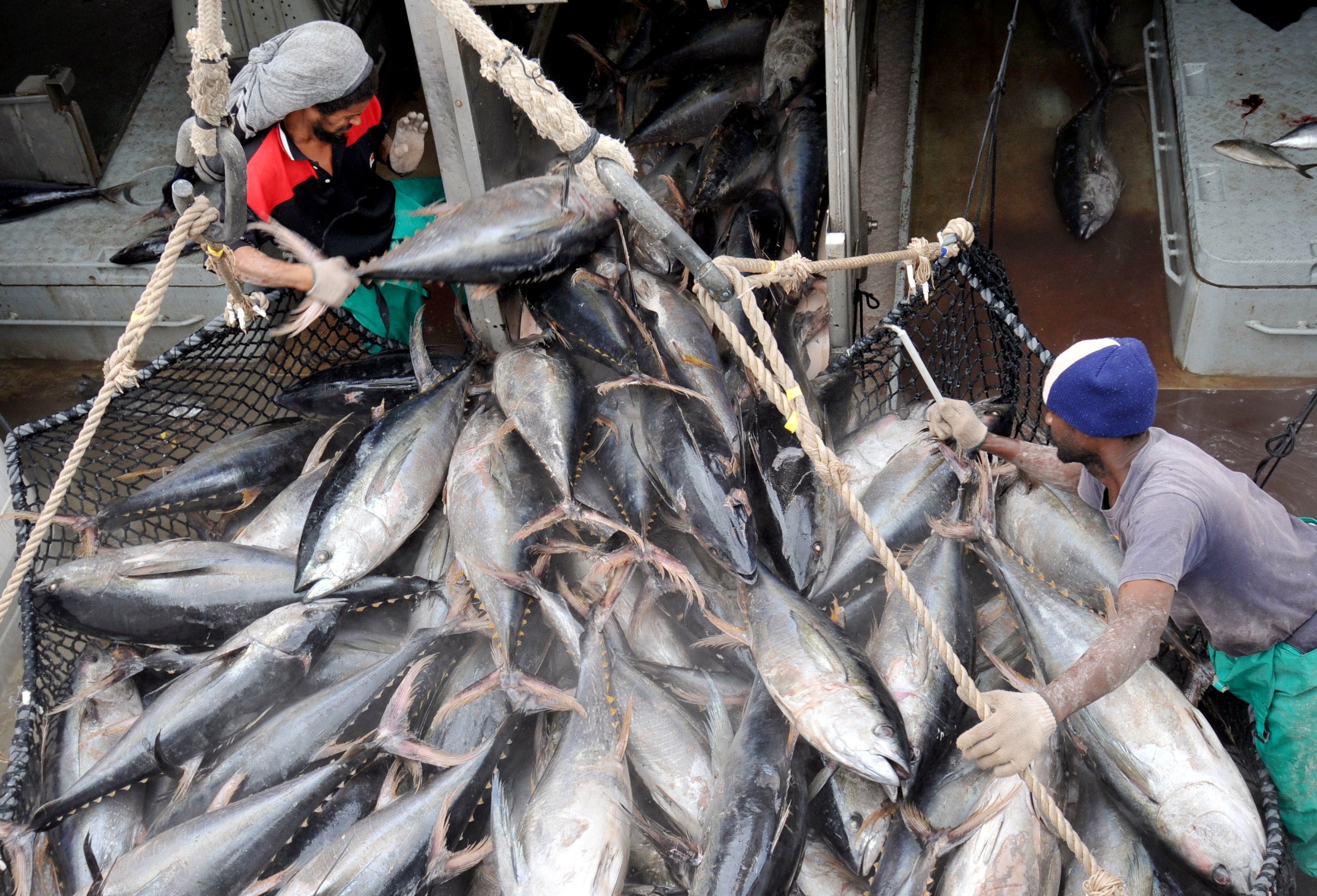Talks begin to protect Indian Ocean tuna as demand depletes stocks

Talks have begun to try to save rapidly-depleting tuna stocks in the Indian Ocean as demand soars in Asia, Europe and North America for sushi and tinned fish.
The Indian Ocean Tuna Commission (IOTC), which has representatives from coastal countries from Australia to Kenya plus major fishing region the European Union, met on Tuesday for a five-day virtual debate on yellowfin tuna quotas.
Environmentalists say the warm water species is at risk of depletion as over-fishing compounds other threats from climate change and pollution.
The majority of fish are taken by French and Spanish fishing fleets using industrial methods such as “purse seine” with huge nets that often net juvenile yellowfin yet to begin reproducing. Coastal nations want to limit Europe’s distant-water fleets.
“They are the visitors,” said Will McCallum, head of oceans at environmental group Greenpeace UK, of the European fleets. “They are fishing at a far larger capacity than anybody else, and it’s not an equitable state of affairs.”
The situation has become so severe that British supermarkets Tesco and Co-op and Belgian retailer Colruyt pledged last year to stop buying Indian Ocean yellowfin unless a plan is adopted to repopulate the dwindling stocks.
The International Union for Conservation of Nature has had the species on its “red list” for nearly a decade.
Yet the total global catch has risen by about one-third, to nearly 450,000 metric tons annually, according to the London-based Blue Marine Foundation advocacy group, which said that stocks could soon “collapse”.
The Maldives wants the yellowfin catch to be cut by 15 per cent from 2015 levels, when IOTC scientists first agreed they were being overfished.
Last year the IOTC recommended cutting the catch by 20 per cent from 2014 levels, but rowed back in January, saying that was distorted by projections from the 2018 stock assessment.
The European Union proposes a total catch reduction from nearly 438,000 metric tons in 2019 to about 380,000.
Demand for yellowfin is booming as its light meat is widely used for tinned fish and in sushi in North America, Europe and Asia.
The global yellowfin market in 2018 was worth $15.8bn (£11.36bn), the second-highest value of the seven tuna species, according to a report by the world’s largest canned tuna company, Thai Union Group PCL.
Additional reporting by Reuters
Join our commenting forum
Join thought-provoking conversations, follow other Independent readers and see their replies
Comments


Bookmark popover
Removed from bookmarks